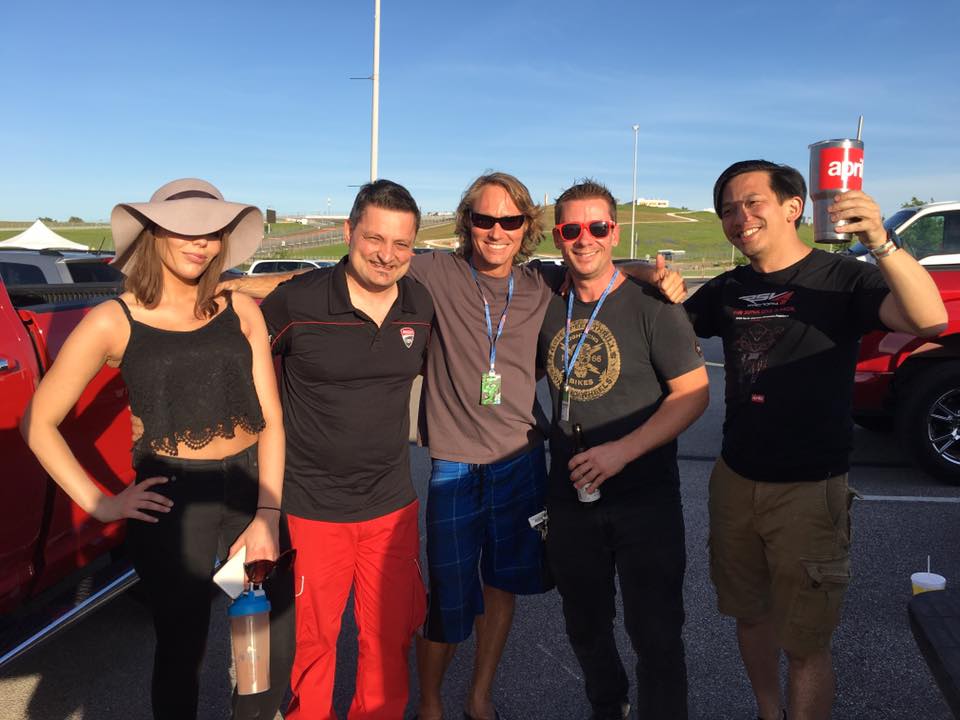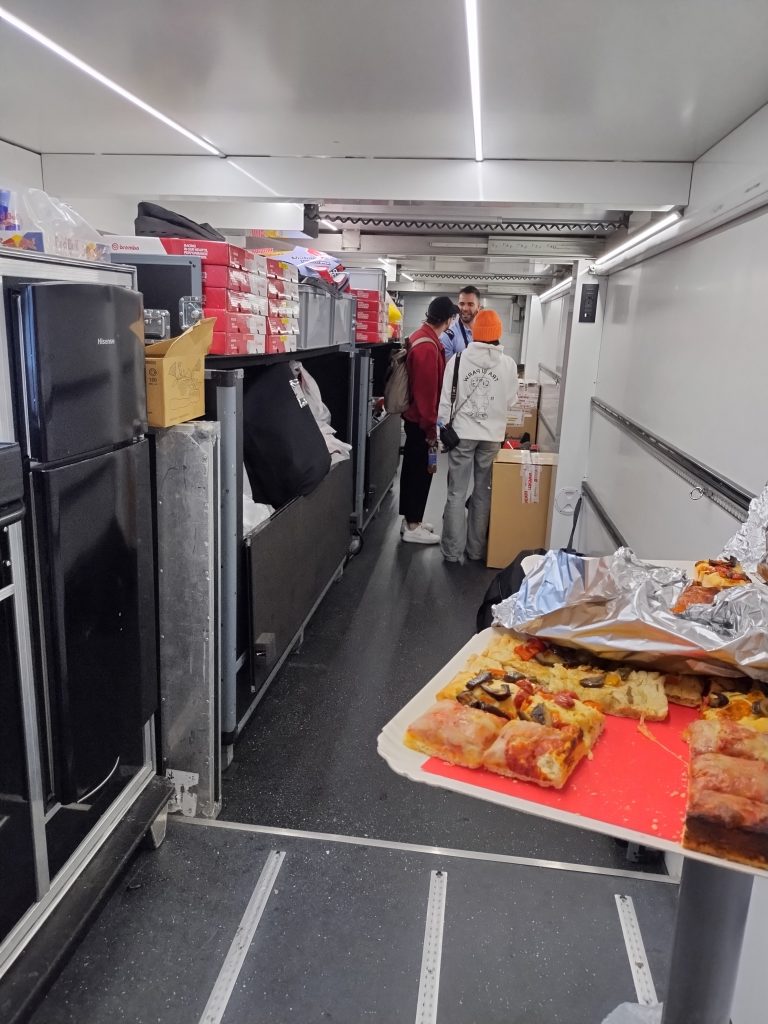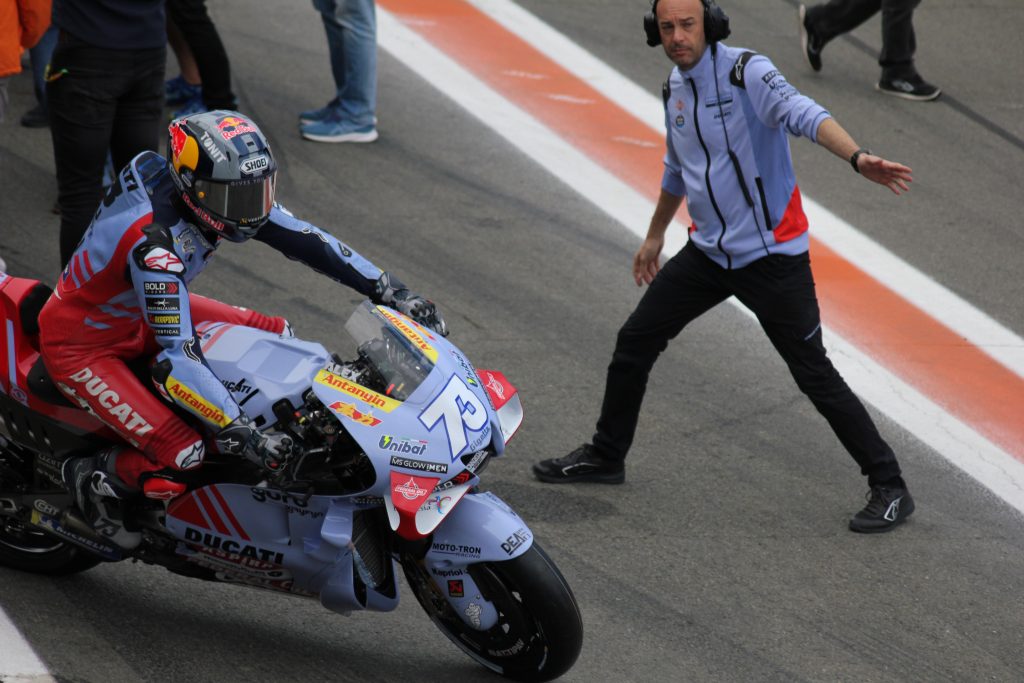Spending Some Time With Ducati's Sergio Verbena

By: Kristi Emmons
Back to you with more behind the scenes content and action from behind pit-lane wall, Cycle Vision Network made the trek all the way out to Valencia, Spain, to dig deep into the coverage that you don’t normally get to see, at the final round of the MotoGP season for 2023.
Cycle Vision Network’s Kristi Emmons had the pleasure of sitting down with an engineer from the top factory, in the top motorcycle road racing championship in the world, Sergio Verbena. Sergio Verbena, working side by side with the satellite team who is to host Marc Marquez’s big switch to Ducati in 2024, was gracious enough to carve some time during a very busy race weekend, to share his experience working in motorcycles.
CVN: We have here with us, Sergio Verbena, with Ducati. Sergio, what is your official job title?
SV: I’m the technical coordinator for the Gresini team.
CVN: And you’re with Ducati?
SV: Yes, I work for Ducati, and I’m supporting the Gresini team for technical matters; all the technical matters related to engine and gearbox. Relating to electronics, there is another engineer that is making my job, but only for the electronic stuff.
CVN: What kind of jobs in motorcycle racing did you have before this position?
SV: At the beginning, I was in electronics. Then, I started to make crew chief with some riders, and then I became technical coordinator in Ducati. Then, I became technical coordinator in KTM MotoGP. Then, I became crew chief again in KTM MotoGP, and now in Ducati and I’m back to technical coordinator.
CVN: Which do you prefer?
SV: Crew chief. I like to work with the riders, and be very close to the rider, to hear his comments, to work on the bike, to make performance; not just a lot of [the other] stuff.
CVN: That’s interesting! Regardless, it’s pretty cool that you’re working in the top championship in the world for motorcycle racing.
Can you tell us a little bit about yourself, like where you’re from, how you got into the sport, and how you relate to motorcycles?
SV: I’m from Italy. I was born in Monza, and I studied mechanical engineering. So, I’m a mechanical engineer, and then I started with the motorcycle sport, because one friend of mine was coordinating one team in 250, and he was looking for people. He knew that I was trying to come into the sport, and so I started with him. Then I made 250, 500, MotoGP…
CVN: How long ago did you start working in motorcycle racing?
SV: I started in 2001. So, this year, it was my twenty-third year in racing, and I made (worked) also almost all categories. I made 125, 250, 500, MotoGP, Superbikes, Supersport, Moto2…I’m just missing Moto3.
CVN: Wow, because Moto3 started in 2012?
SV: Two thousand…twelve, or thirteen. 2010 was the first year in Moto2, and Moto3, I think it was two or three years later. I’m not sure.
CVN: Are you involved with motorcycles outside of your job; outside of engineering? Did you just take an interest in engineering, or do you love motorcycles? Do you ride yourself, or did you just happen to fall into this sector?
SV: I love motorcycles. I used to ride motorcycles in the past. [It’s been] a few years that I don’t have the bike, because even if I get a bike, I never have time to use it. So, it’s been a few years since I’m not riding motorcycles, but in the future, I’m planning to buy one. It’s not just my passion like a job, but I was very, very passionate with motorcycles…even before starting this job. That’s why I start with this. It’s not just a job for me, but it’s the job I wanted to do.
CVN: That’s beautiful. I know that a lot of people in this paddock have real passion for the sport, while some people just happen to fall into it. That’s cool that you live in a country where motorcycling is so big, so you probably grew up around a lot of motorcycles, and it’s in your culture. You also are from close to a very famous race circuit. That’s awesome.
Now, what are some of the specific duties that you have during a race weekend? You told us what your title is, but can you describe what you do, on a daily basis, a little bit more?
SV: Yes. I have to take care of the reliability of the bikes, and all the updates, because almost every race, we get some update to improve the performance or to improve the reliability, and so I’m in charge to control that everything is organized in the correct way, and during the weekend, I check that the bikes are working properly.
CVN: How do you do that?
SV: With looking at the data, checking the mechanic working. So, I control that everybody’s doing what is planned to do, and looking at the data, I’m checking that the bikes have no issue.
CVN: So that’s a lot of managing.
SV: It’s mostly managing.
CVN: Yes, it’s very essential, especially for this team, and now look at where this team is- it’s at the top; doing so well.
Thank you very much for your time.

